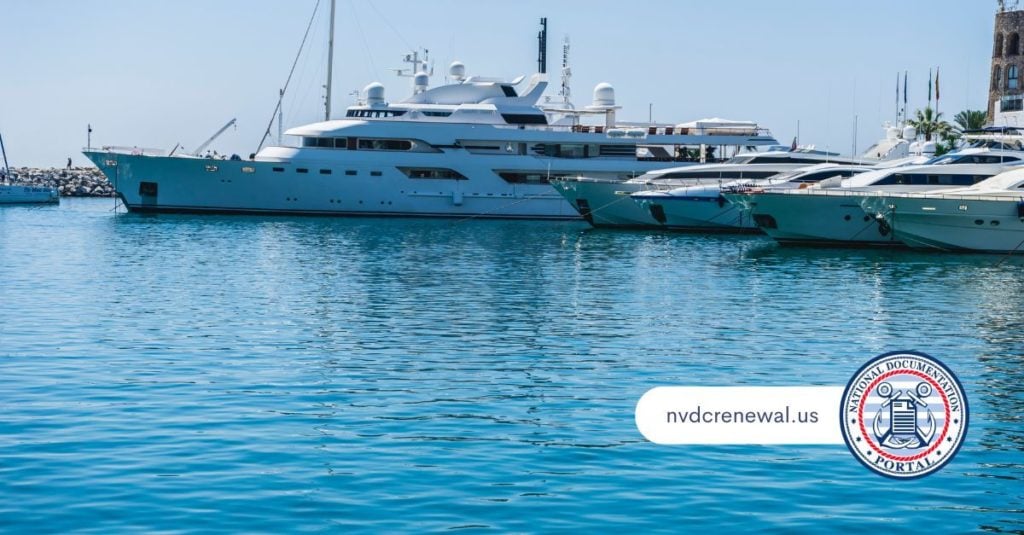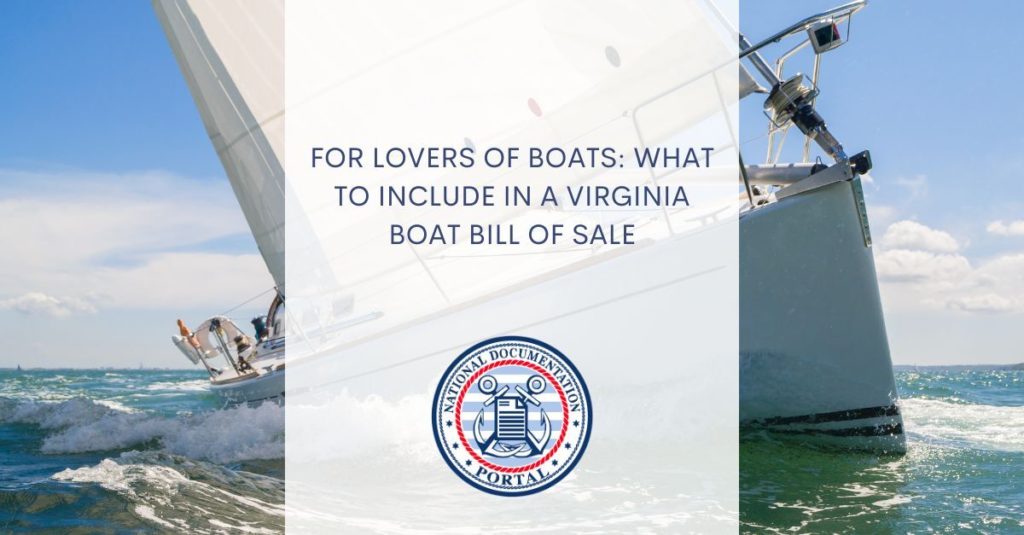Whether you’re upgrading to a larger vessel or selling your first boat, proper documentation protects both buyer and seller during the transaction. A Virginia boat bill of sale serves as crucial legal proof of ownership transfer, especially when dealing with undocumented vessels that haven’t gone through the Coast Guard registration process.

Many boat owners underestimate the importance of this document until problems arise. Without a properly executed bill of sale, disputes over ownership can drag on for months, leaving both parties frustrated and potentially facing legal complications. Understanding what to include in your Virginia boat bill of sale ensures a smooth transfer and protects your interests throughout the process.
Understanding Virginia’s Boat Sale Requirements
Virginia law requires specific documentation when transferring ownership of watercraft. While some boats require Coast Guard documentation, many smaller vessels fall under state jurisdiction and rely heavily on bills of sale for ownership verification.
The Virginia Department of Wildlife Resources oversees boat registration within the state. They require clear proof of ownership before issuing new registration documents. A comprehensive boat bill of sale provides this proof while establishing the legal foundation for the ownership transfer.
State regulations mandate that certain information must appear in any valid bill of sale. Missing these required elements can invalidate the document, potentially causing registration delays or legal disputes down the road. Understanding these requirements helps you create a document that meets legal standards while protecting both parties.
When You Need a Virginia Boat Bill of Sale
Not every watercraft transaction requires the same documentation. Boats under certain size limits that operate exclusively in Virginia waters may need only state registration rather than federal documentation. These vessels rely on bills of sale as primary ownership documents.
Additionally, inherited boats, gift transfers between family members, and sales of older vessels without existing documentation all require properly executed bills of sale. Even if you plan to pursue vessel documentation later, starting with a solid state-level bill of sale establishes clear ownership chains.
Essential Elements of Your Virginia Boat Bill of Sale
Creating an effective boat bill of sale requires attention to detail and inclusion of specific information. The more comprehensive your document, the better protection it offers both parties and the smoother future transactions become.
Seller Information
Include the seller’s full legal name exactly as it appears on identification documents. Add complete address including street number, city, state, and ZIP code. Some situations require additional identification numbers, such as driver’s license numbers, to prevent fraud.
Buyer Information
Record identical details for the purchaser. Ensure names match those on driver’s licenses or other official identification. If multiple people are purchasing the vessel jointly, include all names and specify how ownership will be held.
Complete Vessel Description
Provide exhaustive details about the watercraft being sold. Include manufacturer, model year, length, beam width, hull material, and engine specifications. Record hull identification numbers (HIN) exactly as they appear on the boat. Document any unique features, modifications, or distinguishing characteristics that help identify the specific vessel.
Financial Terms
State the purchase price clearly, writing out the amount in both numbers and words to prevent alteration. Specify the currency and payment method. Include details about deposits, payment schedules, or financing arrangements if applicable.
Transfer Date and Location
Document exactly when and where the ownership transfer occurs. This information becomes crucial for insurance purposes and helps establish clear timelines if disputes arise later.
Additional Details That Strengthen Your Document
Beyond basic requirements, additional information makes your Virginia boat bill of sale more valuable and legally sound. Consider including warranty information, disclosure of known defects, and statements about liens or encumbrances.
Document any accessories, equipment, or trailers included in the sale. List electronics, safety equipment, covers, and other items that transfer with the vessel. This prevents later disagreements about what was included in the purchase price.
Include odometer readings for boats equipped with hour meters. Note the condition of major systems including engines, electrical systems, and hull integrity. While sellers aren’t required to provide warranties, documenting the boat’s condition at sale protects both parties.
Creating Your Own Bill of Sale Form
Writing your own boat bill of sale gives you control over the document’s content and ensures it meets your specific needs. Start with basic templates but customize them for your particular situation and Virginia’s requirements.
Begin with clear headings that identify the document as a bill of sale. Include spaces for all required information with enough room for complete details. Use clear, straightforward language that both parties can easily understand.
Consider legal language that protects your interests while remaining fair to the other party. Phrases like “sold as-is” or “without warranty” clarify expectations about the boat’s condition. Include signature lines with printed names and dates for both parties.
Making Your Document Legally Binding
Proper execution makes the difference between a helpful record and a legally enforceable document. Both parties must sign the bill of sale, preferably in the presence of witnesses or a notary public. While Virginia doesn’t always require notarization, having documents notarized adds legal weight and prevents later claims of fraud or coercion.
Keep multiple copies of the signed document. Each party should retain an original, and consider filing a copy with relevant authorities if required. Digital copies stored securely provide backup protection against loss or damage.
Consider having witnesses sign the document even if not legally required. Independent witnesses can verify the transaction occurred and both parties signed willingly. This extra step provides additional protection if disputes arise later.
Protecting Yourself During the Sale Process
A comprehensive Virginia boat bill of sale protects both buyer and seller throughout the transaction process. For sellers, the document provides proof that ownership transferred on a specific date, limiting liability for future incidents involving the vessel.
Buyers benefit from clear documentation of what they purchased and when ownership began. This information becomes essential for insurance purposes, registration with state authorities, and potential future sales.
Include specific language about the condition in which the boat is being sold. Document any known issues, recent repairs, or outstanding maintenance needs. This transparency protects sellers from later claims while helping buyers make informed decisions.
If you wish to learn more about a boat, you can complete a search through our site or apply for an abstract of title.
Documentation for Future Vessel Documentation
While your Virginia boat bill of sale handles immediate ownership transfer, you might later decide to pursue vessel documentation through the United States Coast Guard. Federal documentation offers advantages for larger vessels or those traveling in international waters.
The National Documentation Portal specializes in helping boat owners navigate the Coast Guard documentation process. Our experienced team understands the complex requirements and can guide you through each step, ensuring your application is complete and accurate.
Moreover, we make sure that our forms are in keeping with Coast Guard registration laws.
Whether you’re selling your first boat or your tenth, taking time to create a thorough Virginia boat bill of sale protects your interests and ensures smooth ownership transfer. If you decide to pursue vessel documentation, the National Documentation Portal stands ready to assist with professional, efficient service that gets your documentation completed correctly the first time.

